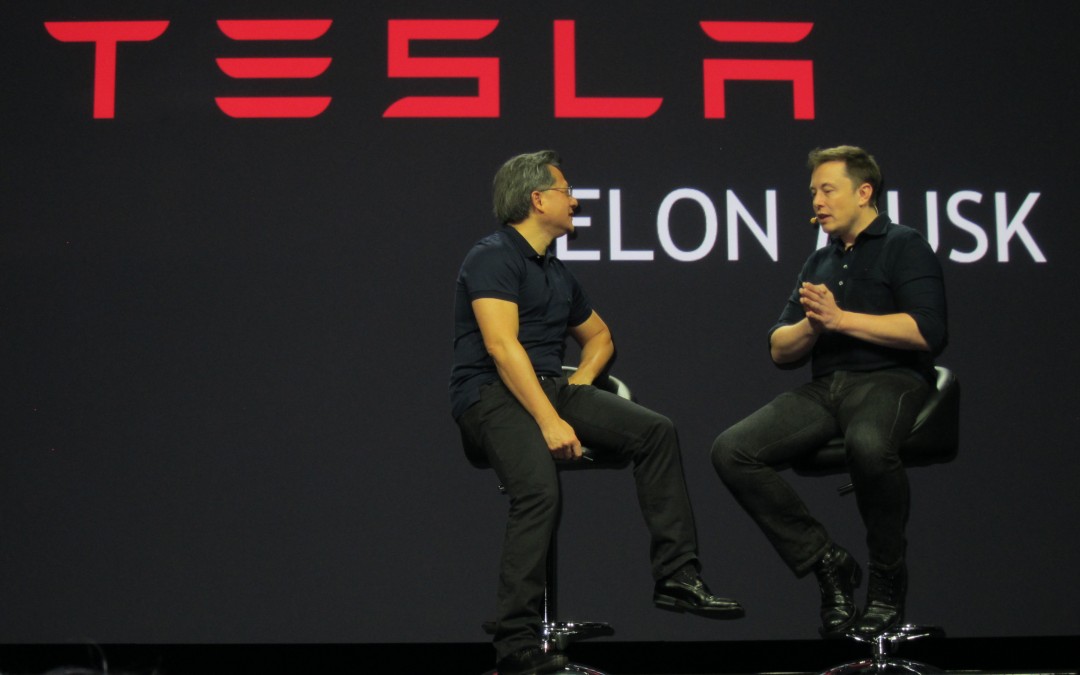
Mar 17, 2015 | Clean Tech, Electric Vehicles
By Alison van Diggelen, host of Fresh Dialogues
Tesla CEO Elon Musk is so bullish about self driving cars and the promise of artificial intelligence, that he wonders if one day, there will be “something left for us humans to do.” Today he joined Nvidia CEO Jen-Hsun Huang onstage at the company’s annual developers conference in Silicon Valley and used the opportunity to recruit for Tesla’s autonomous driving team.
“Tesla is the leader in electric cars, and we’ll also be the leader in autonomous cars…at least autonomous cars that people can buy. If anybody is interested in working on autonomous cars, we’d love to have you work at Tesla. We’re going to put a lot of effort into autonomous driving…it’s going to be the default thing…it will be extremely transformative,” Elon Musk.
Musk, who Huang describes as an engineer’s engineer, views autonomous driving as “a solved problem” and expects that once its life-saving potential is proven, we’ll all take autonomous cars for granted.
“We know exactly what to do and we’ll be there in a few years,” Musk says. Yet he acknowledges that although freeway driving and driving under 10 mph are (relatively) easy problems to solve, “in between is hard,” especially in suburban areas where there are children playing, roadworks and other unexpected obstacles.
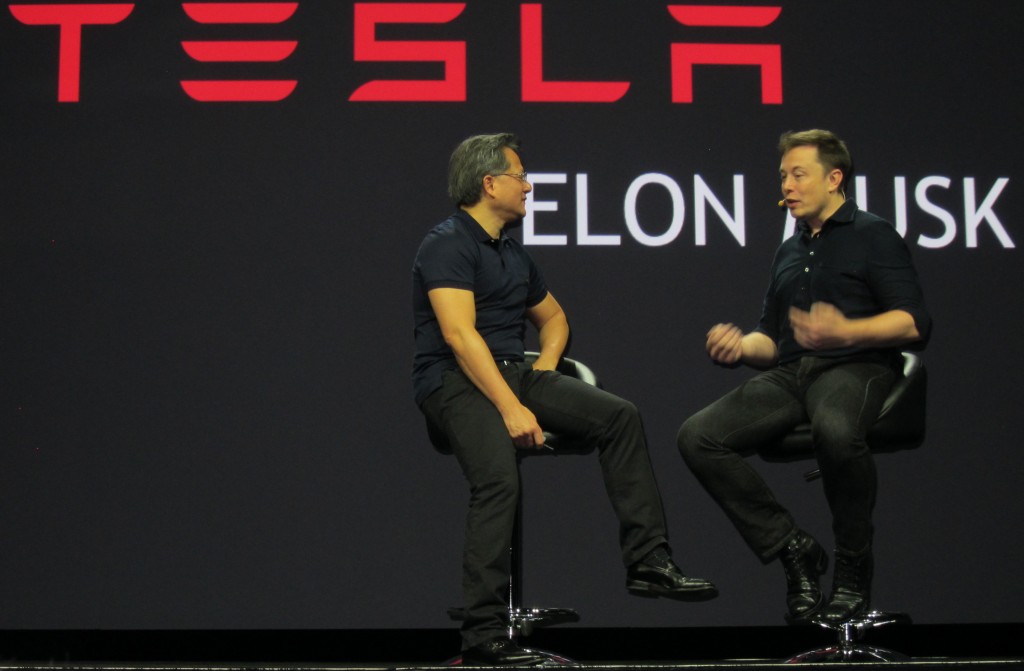 Huang was keen to explore what Tesla’s big announcement will be on Thursday, something Musk has described as providing “an end to range anxiety.”
Huang was keen to explore what Tesla’s big announcement will be on Thursday, something Musk has described as providing “an end to range anxiety.”
But Musk was tight lipped, though he did explain how Tesla’s software system is like the human brain in only using a small part of its capacity. The company’s ability to offer regular software updates allows the Model S performance to continually improve over time.
“The first thing we want to do is establish the hardware platform, make sure we have the sensors and computing power, even though the software is only taking advantage of a small percentage of the sensors’ compute power and we do continuous updates to make the car more and more capable. We’re going to see a lot of that happen later this year. If I didn’t have an announcement Thursday, I’d be saying a lot more,” Elon Musk
Road Blocks
Is Musk concerned about big government thwarting big advances in autonomous vehicles?
Not in the least. He appreciates that where public safety is concerned, a cautious approach is necessary and he anticipates that a green light will come from regulatory authorities approximately two years after autonomous driving teams prove their vehicles are safer than humans.
“Regulators will want to see a large amount of statistical proof…but the evidence will be overwhelming,” says Musk. He even anticipates that one day (in the far future), humans driving cars may be illegal because, after all, “You can’t have a person driving a two-ton death machine.”
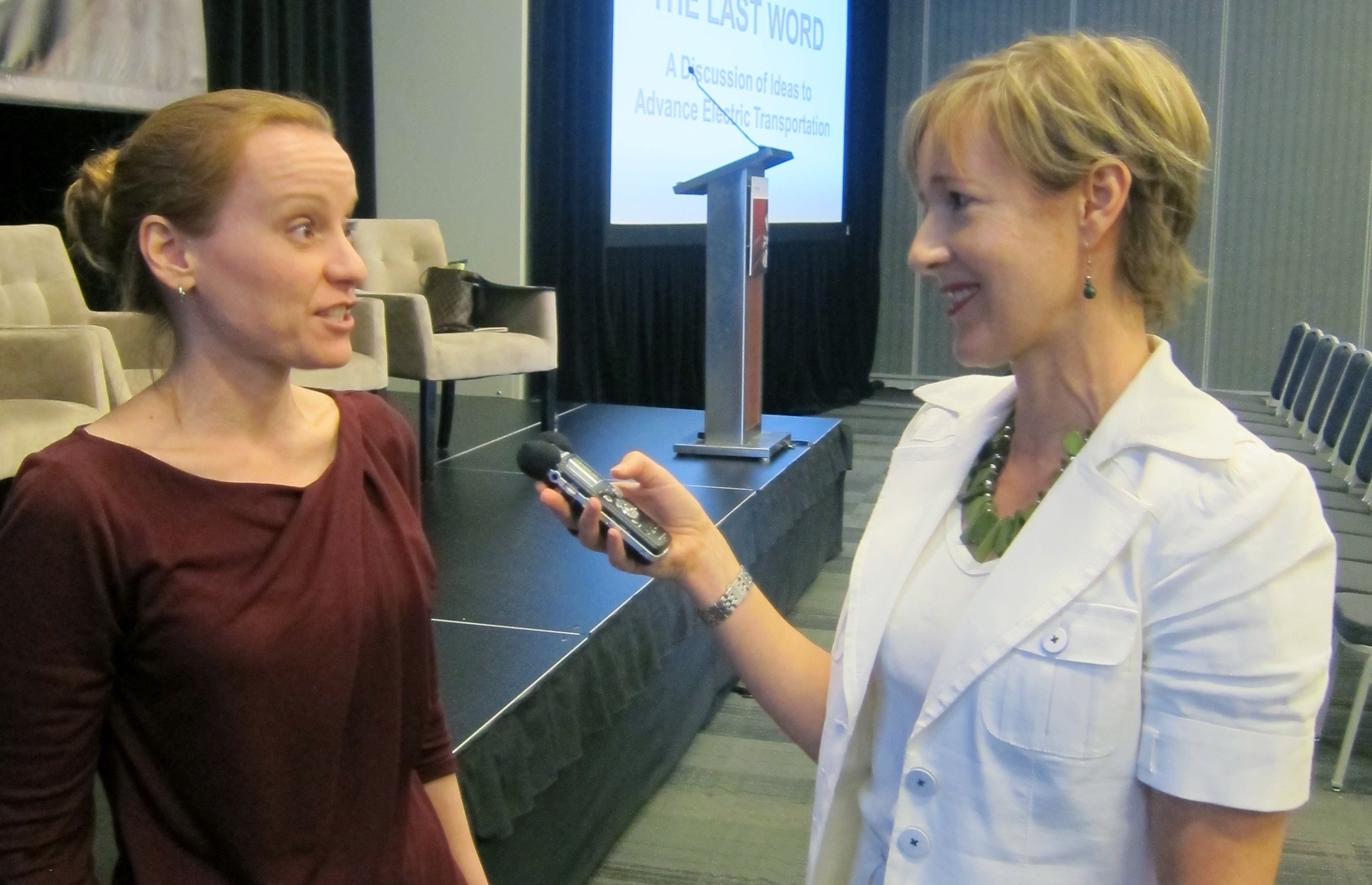
Sep 15, 2014 | Electric Vehicles
By Alison van Diggelen, host of Fresh Dialogues
Chelsea Sexton is famous – among electric car fans – for her role in the documentary “
Who Killed the Electric Car?” I caught up with Sexton at this summer’s
Plug-In Conference in Silicon Valley and she emphasized the importance of “getting butts in seats” – electric vehicle seats that is – in order to expand the adoption of EVs.
An employee of GM, Sexton was part of the L.A. team tasked with leasing the first commercial electric vehicle:
the EV1. When GM decided to recall the car, she became a vocal opponent of the recall, but that didn’t stop the company crushing the majority of the fleet. It’s an episode in EV history that makes quite
Tesla’s Elon Musk emotional (see @39:25 in our
in-depth interview).
Today, Sexton is an outspoken advocate for the development and expansion of the electric vehicles market, and helped launch the
Automotive X Prize. Here are some highlights of our conversation:
On expanding electric vehicle ownership
“Getting butts in seats is key,” Chelsea Sexton
This mantra was repeated several times by Sexton and her fellow panelists, during the last Plenary Session: Ideas to Advance Electric Transportation.
The rationale is that the more people who experience the acceleration and performance of electric cars, the more people will buy them. Programs like Experience Electric and National Drive Electric Week (Sept 15-21) are tackling this challenge.
On why she loves electric vehicles
“I love torque more than anyone rightfully should…that experience of off-the-line speed, and racing one car against the other…that’s torque. Bill Nye jokes that I have a lead foot…I have a lithium foot.”
Sexton used her “lithium foot” during a
Wired Magazine assignment in 2013, when she got to drive the all electric Yokohama HER-02 EV.
On where electric vehicles are today
“The last few years have been the giddy freshman – we finally have electric cars again – years and now we’re in the phase – the sophomore slump – where it’s time to dig into the less sexy nuts and bolts and infrastructure.”
On the future of electric cars
“I’d like to see them no longer a novelty. The next 5 years will determine what will happen…we hope to see more vehicle types and be less reliant on incentives and be more self-sustaining.”
On Tesla Motors
“It’s the most aspirational example of an electric car…Elon (Musk) is rocket man, so who’s not excited by that?”
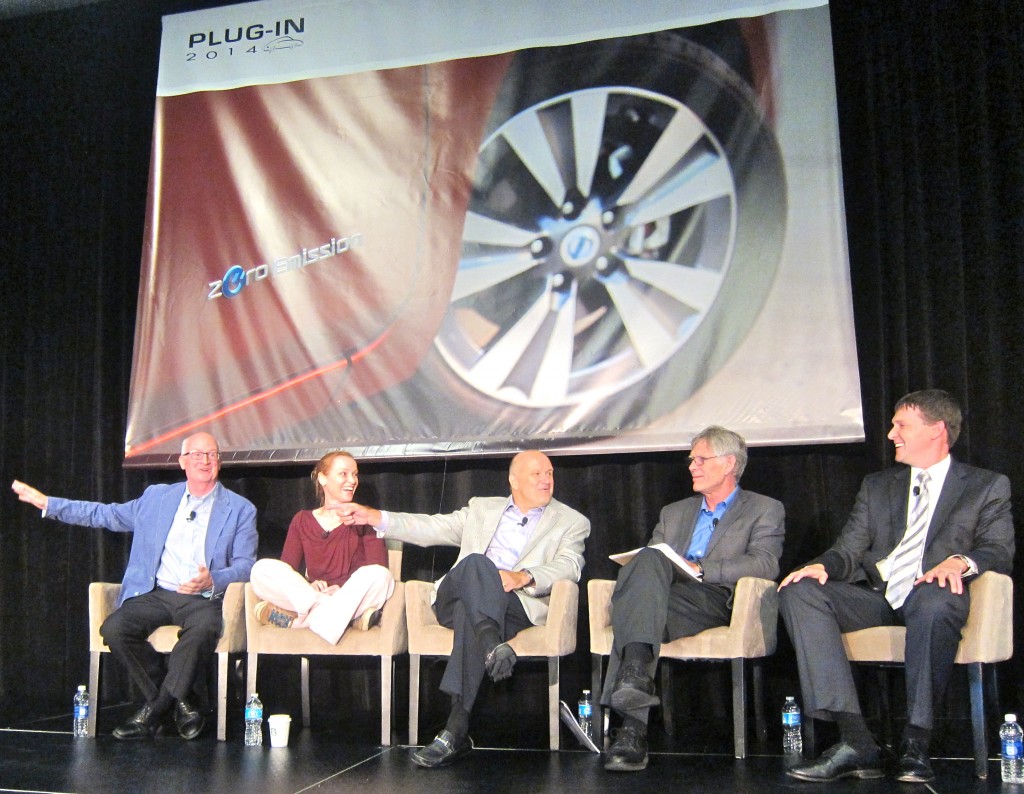 2014 Plugged-In Conference Plenary Session: Ideas to Advance Electric Transportation
2014 Plugged-In Conference Plenary Session: Ideas to Advance Electric Transportation
From Left:
Watson Collins, Manager, Research & Business Development, Northeast Utilities
Chelsea Sexton, Founder, Lightning Rod Foundation
Edward Kjaer, Director, Transportation Electrification, Southern California Edison
Tom Turrentine, PH&EV Research Center, Institute of Transportation Studies, University of California, Davis.
Dan Bowermaster, Program Manager, EPRI, Electric Transportation, Electric Power Research Institute
Find out the latest news about Electric Vehicles and Driverless vehicles, reports from Fresh Dialogues
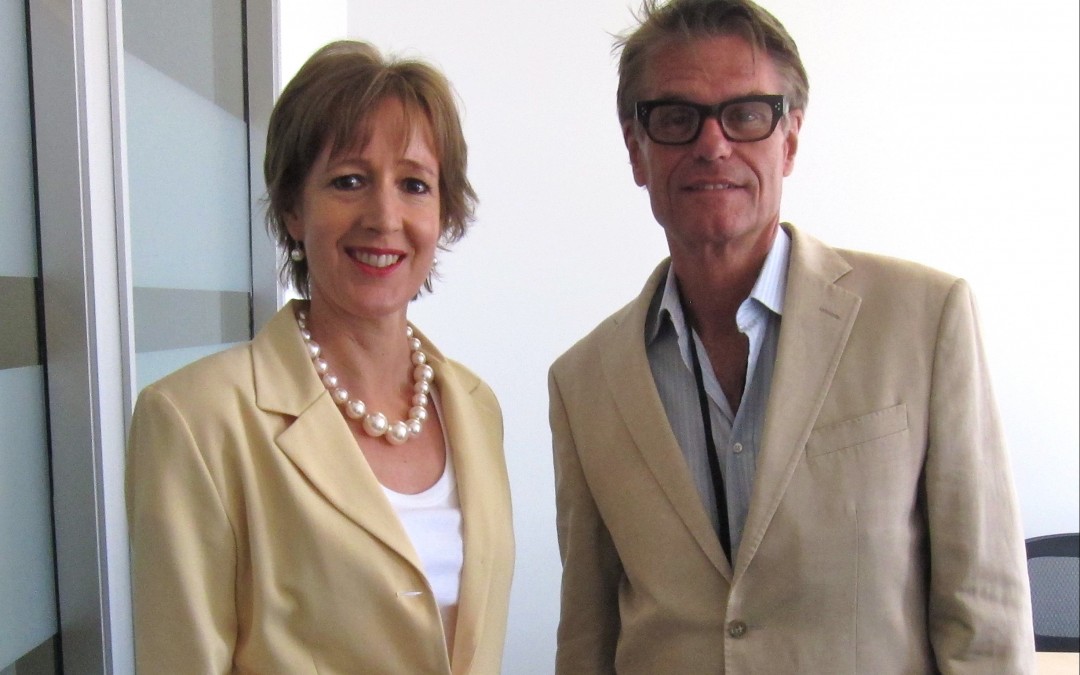
May 21, 2014 | Clean Tech, Electric Vehicles, Nuclear Energy
By Alison van Diggelen, host of Fresh Dialogues
It’s amazing who you bump into at Silicon Valley conferences! Last week, it was Harry Hamlin of Mad Men fame. Turns out he’s a huge fan of Tesla Motors and Elon Musk. I put my Mad Men zeal aside and we talked internal combustion vs electric cars; the need for clean energy and why he thinks nuclear fusion, not wind and solar, is the answer. (Here’s a little primer on nuclear fusion if, like me, your physics is a wee bit rusty).
.
“I will never buy another internal combustion engine car,” says Harry Hamlin. The Mad Men star is completely enamoured by his Tesla Model S, and says it outperforms any car he’s ever driven, and he’s driven them all during his long and tumultuous acting career: from Aston Martin to Ferrari and Lamborghini to Porsche.
We discuss his vision for a clean energy future and he gives us a lesson from Einstein on nuclear fusion. You may notice a big smile on my face when he launches into an explanation of E=MC Squared. It was one of the most surreal moments in my eventful interviewing career. Hamlin may be a pretty face, but he’s also quite the intellectual.
He eschewed questions about his investments in clean energy, however Michael Kanellos of Forbes has written about the secretive company, Tri-Alpha Energy, with which Hamlin is connected. Kanellos also points out, that although nuclear fusion offers a tantalizingly abundant source of clean power, it’s not that easy to produce at scale. Hamlin may find it easy to “drive green” but the green energy bit is still a work in progress.
In other news, Hamlin confirmed that Mad Men is “an ongoing project,” so I think we safely can conclude he survives this weekend’s series finale. He also told me about his upcoming independent movies:
“The Erotic Fire of the Unthinkable” – in which he plays “the anti-hero.” Hamlin claims it’s not as X-rated as his sounds.
“The Fourth Noble Truth” – This movie about Buddhism recently won a prize at the Sonoma Film Festival.
The interview was recorded at the World Energy Innovation Forum at The Tesla Factory on May 14, 2014.
Check back soon for my interview with the Forum Chairman and Host, Ira Ehrenpreis.
See and read about more celebrity interviews at Fresh Dialogues, including Meryl Streep, Martin Sheen and Neil deGrasse Tyson.
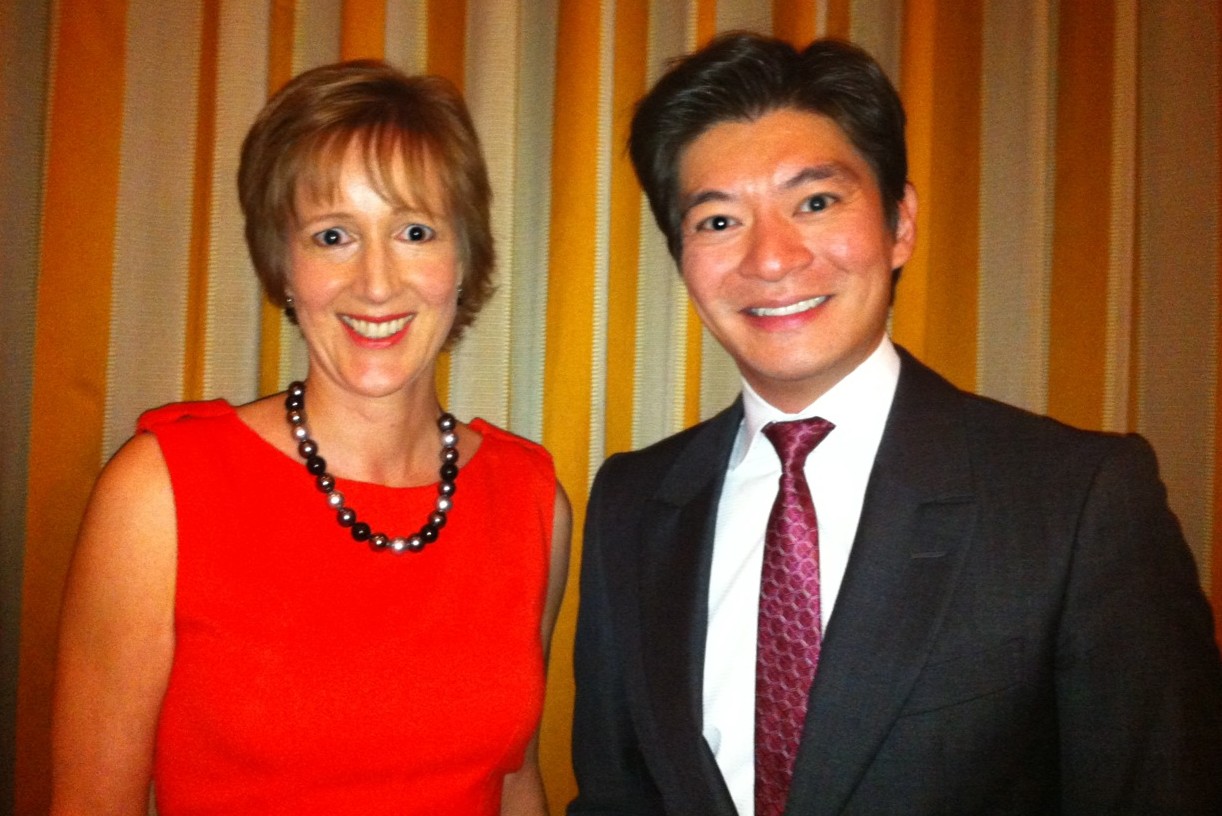
May 5, 2014 | China - what we can learn, Electric Vehicles, Storage, Technology, Venture Capital & Finance
By Alison van Diggelen, host of Fresh Dialogues
It’s no secret that cleantech has taken a bashing in the last few years, yet Andrew Chung, a partner at Khosla Ventures is still bullish about the sector’s prospects and convinced that it makes sense long-term, both domestically and globally. During our recent hour-long conversation, he admits that “keeping the cleantech fire burning” is the first thing he thinks about when he wakes in the morning.
“The number one thing is to ensure the cleantech industry continues to survive and thrive,” says Chung. He cites several companies in his portfolio that recently raised large rounds at strong valuations.
Keeping the fire burning? It’s curious imagery for someone focused on clean energy; and technologies that lower our carbon footprint. I imagine him cheerfully stoking a bonfire, plumes of black smoke filling the air.
“Would you like to qualify that?” I ask.
He chuckles, “Yes…we would capture the carbon created by the fire and transform it into something else.”
It’s a fitting segue into one of his favorite investments: LanzaTech, a company that happens to do just that. It takes carbon capture one step further, capturing waste gases like carbon monoxide from heavily polluting steel plants and converting them into “valuable fuel and chemicals.”
He calls it one of his Black Swans – highly improbable investments, that are not incremental improvements on business as usual, but giant technological leaps.
“This is cleantech done right,” Chung says. “The technology is so compelling.”
So compelling that the company recently announced a joint venture with Baosteel, a major steelmaker in China, which is investing in a new commercial facility due to come online in 2015. LanzaTech’s zero capital contribution to the deal means it can continue to scale up and pursue other partnerships in Japan, Europe, India and Russia.
I was curious to learn who helped with the initial discussions to broker the deal? None other than former British Prime Minister, Tony Blair. Those paying close attention to Khosla Ventures will remember he joined the team as a strategic advisor in 2010.
So what makes it such a compelling deal? Chung calls it a confluence of events. The blanket of smoke over Shanghai being a palpable one, leading to pressure from the Chinese government on major polluters like steel makers to clean up their act. There’s also the global ambition of many Chinese businesses who view such partnerships as strategic moves.
Societal tensions add to the pressure to solve China’s huge environmental problem. Even Jack Ma, China’s Andrew Carnegie is focusing his new philanthropic trust on health and the environment.
CONSPICUOUS ABSENCE
You’ll notice that the United States is conspicuously absent from LanzaTech’s partnership list. That fact is also at the top of Chung’s mind. Several of the potentially transformative technology companies he backs are finding it easier to get global partners than American ones.
“How do we communicate this message to D.C.?” says Chung. “If technology is not supported here, it will leave our shores.”
Chung feels the regulatory environment means that American companies are more complacent and have less appetite to take risks. He cites the U.S. car industry where employees get bonuses whether or not they achieve product improvements.
“It needs a regulatory push to compel them to take greater risk,” says Chung. “We don’t have the dire need like in China where (almost) 1 million people are dying of pollution every year.”
KINDRED SPIRITS OF ELON MUSK
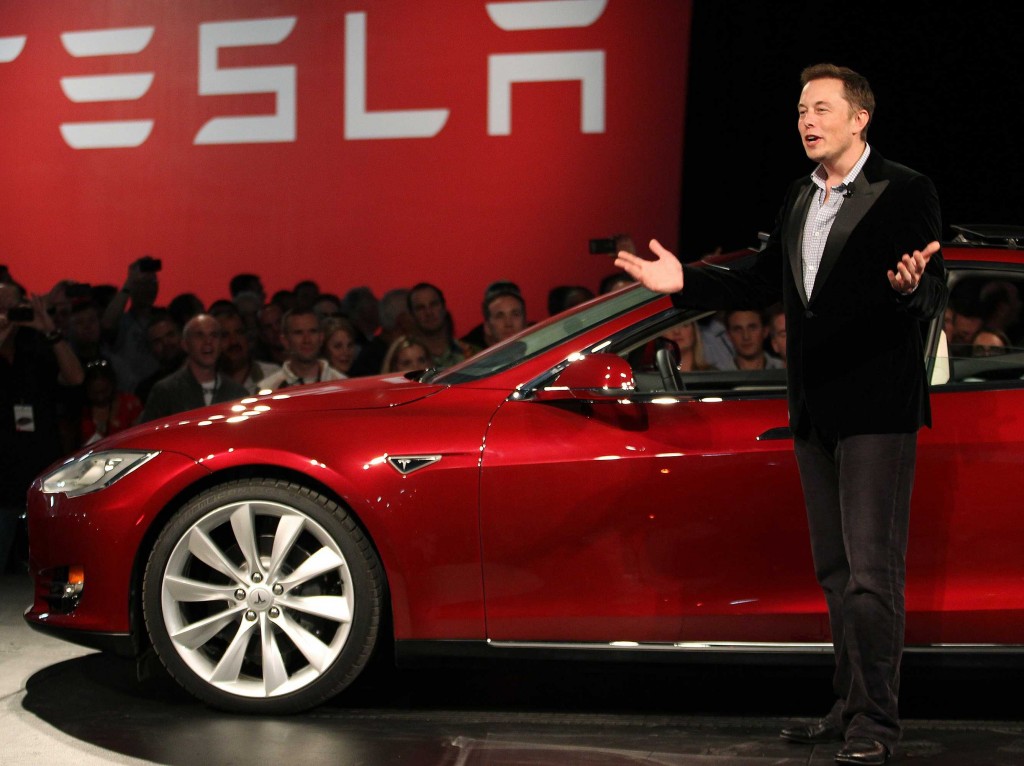 Talking of risk taking, Chung sees himself and his boss Vinod Khosla as kindred spirits of Elon Musk, who staked all his PayPal wealth on transforming the electric car sector with Tesla Motors.
Talking of risk taking, Chung sees himself and his boss Vinod Khosla as kindred spirits of Elon Musk, who staked all his PayPal wealth on transforming the electric car sector with Tesla Motors.
“It’s a major cleantech success story,” says Chung. “Elon deserves a lot of credit…he stepped on the gas when others were giving up.”
What makes them kindred spirits? It’s more than just their strong belief in technology explains Chung. He quotes Irish playwright and cofounder of the London School of Economics, George Bernard Shaw:
“All progress depends on the unreasonable man.”
“So are you and Vinod Khosla unreasonable?” I ask.
Chung laughs. “We are contrarians!” he says. “We’re willing to do what it takes.”
He points to Khosla’s investment in Ecomotors, an internal combustion engine targetting energy efficiency gains of up to 50%. The company also has backing from Bill Gates and entered into two joint venture partnerships to build plants in China, deals involving hundreds of millions of dollars. He anticipates 200,000 engines for cars and diesel generators will roll off the production lines by the end of 2016.
“We’re addressing the transport problem from both angles,” says Chung. “We are focused on the electric revolution…battery technology investments. EcoMotors is a hedge to reflect the 99% (of the transport sector) that’s not yet electricity…electric vehicle infrastructure is still a challenge.”
SINGING FOR THE WORLD
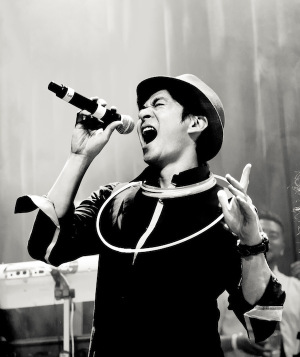

 We finally touch on what Chung calls his “secret identity,” his singing career. A finalist in Hong Kong’s version of American Idol, Chung says he has no regrets about choosing business over a singing career. Although he enjoys “bringing joy” to an audience, he’s very aware that it’s fleeting. Such momentary joy pales in comparison to his goal of having a major societal impact, or as he puts it, “Enabling 5 billion people to live like 1 billion do now.”
We finally touch on what Chung calls his “secret identity,” his singing career. A finalist in Hong Kong’s version of American Idol, Chung says he has no regrets about choosing business over a singing career. Although he enjoys “bringing joy” to an audience, he’s very aware that it’s fleeting. Such momentary joy pales in comparison to his goal of having a major societal impact, or as he puts it, “Enabling 5 billion people to live like 1 billion do now.”
Chung plans to continue singing the praises of disruptive cleantech innovation. He’s firmly committed to keeping that cleantech fire burning.
See a Fresh Dialogues interview with Andrew Chung
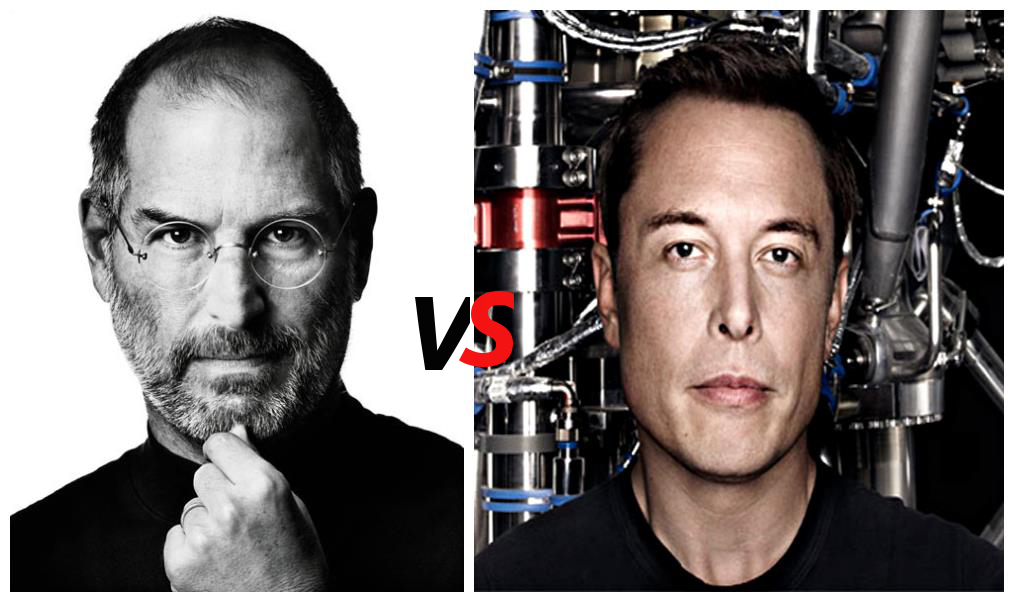
Feb 5, 2014 | Electric Vehicles, Entrepreneurship & Innovation
By Alison van Diggelen, host of Fresh Dialogues
Elon Musk has been hailed as the next Steve Jobs, a serial disruptor and a genius. Others call him just crazy. Yet Musk has defied the naysayers and made remarkable innovations in both electric cars and spaceflight over the last ten years. But just how accurate is the Steve Jobs comparison?
“Most innovation is like a new melody,” writes Ted curator Chris Anderson. “For Jobs and Musk, it’s the whole symphony.”
Anderson’s analogy is right. Neither men do things in small measures. They seek to change the world.
I interviewed Elon Musk last year in one of his most revealing public appearances, and he exposed a complex character that is both deadly serious yet comedic at times; driven yet sensitive; single minded, and yet eclectic in his desire to change the world in multiple ways.
.
That sensitivity was apparent several times during our dialogue when his eyes welled up in response to my questions about the future of NASA, Neil Armstrong, and candlelight vigils for the EV1 (@28:35, 1:04:00 & 39:50 in the video). Steve Jobs was also known to weep.
Musk has many traits in common with Jobs and yet in subtle ways their characters are distinct. Elon Musk vs Steve Jobs. The two did meet, but it didn’t go well.
Here are five revealing moments from our conversation that emphasize the common threads between the two businessmen.
1. Ability to Sell Great Ideas
Jobs used his infamous “reality distortion field” to push his teams hard to achieve much more that they thought was possible. His oft-quoted phrase was “insanely great” and his product launches were passionate and brash.
Musk is more pragmatic in his approach, he rarely uses buzzwords*, and although his product launches are often equally dazzling, his delivery is less assured, more halting.
*Granted, he does talk about getting a “money shot” of his greenhouse on Mars idea (@30:00 in the video).
“In the beginning there will be few people who believe in you or in what you’re doing but then over time… the evidence will build and more and more people will believe in what you’re doing. So, I think it’s a good idea when creating a company to … have a demonstration or to be able to sketch something so people can really envision what it’s about. Try to get to that point as soon as possible.” Elon Musk
This Word Art of our 90-minute conversation reveals no catchy buzzwords, though the word THINK stands out prominently.
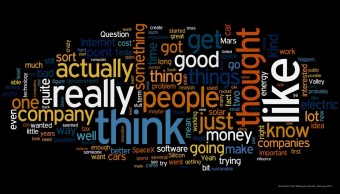
Source: Tyra Robertson
2. Obsessive Attention to Detail:
Stories abound of Steve Jobs’ intense attention to detail. He notoriously spent months agonizing over the internal layout of the Mac computer’s circuit board.
“I want it to be as beautiful as possible, even if it’s inside the box. A great carpenter isn’t going to use lousy wood for the back of a cabinet, even though nobody’s going to see it.” Steve Jobs
When his team failed to deliver on his vision, Jobs often flew into terrible rages. Case in point: the first fanless computer.
By contrast, Musk is known for his attention to detail and being a demanding boss, but he focuses his Vulcan rage at the media over issues like damning test drives, and Tesla car fires; and at foes such as auto dealerships.
His rage also turns inward. For example, when he discovered the wrong type of screw used in the Model S sun visors. He reportedly said, “they felt like daggers in my eyes.”
While doing pre-interviews with Musk’s colleagues, I heard a revealing story about his obsession with the Tesla Model S key fob. A colleague described how he agonized for weeks over the shape, the girth, the weight of the fob till it was just right. Take a peek at the end result and see if you think it was all worth it.
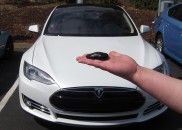
When I visited the Tesla factory (on assignment for KQED), I heard a similar story from the mechanics working on the iconic Model S door handles. Responsive door handles that sit flush with car doors looked like mission impossible, yet Musk and his team eventually prevailed. The result is so highly prized that my tour guide, Gilbert Passin (VP for manufacturing at Tesla) forbade me to take close-up photos of the components, for fear of copycats.
3. Ability to Think Differently Stems from Splendid Isolation
When I asked Musk if he was a lonely kid, he replied:
“I wasn’t all that much of a loner…at least not willingly. I was very very bookish.” Elon Musk
As a kid he was consumed by his own world, reading books like “The Hitchhiker’s Guide to the Galaxy,” and playing Dungeons and Dragons for hours. Musk found coding a piece of cake and created his own software at the tender age of 12. Thanks to his bookish childhood, his innovative ideas could flourish without being squashed by friends or family.
Similarly, Jobs had an isolated childhood, and was bullied at school. He did no competitive school sports and was obsessed by electronics and gadgets.
4. Deep Thinking
Although Jobs was less techie, more visionary; and Musk is a geeky engineer who prides himself on innovation using scientific first principles, both are deep thinkers.
Elon Musk explained how Hitchhiker’s Guide to the Galaxy inspired him while he was looking for the meaning of life as a teenager.
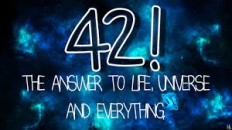 “It highlighted an important point, which is that a lot of times the question is harder than the answer. And if you can properly phrase the question, then the answer is the easy part. To the degree that we can better understand the universe, then we can better know what questions to ask. Then whatever the question is that most approximates: what’s the meaning of life? That’s the question we can ultimately get closer to understanding. And so I thought to the degree that we can expand the scope and scale of consciousness and knowledge, then that would be a good thing.” Elon Musk
“It highlighted an important point, which is that a lot of times the question is harder than the answer. And if you can properly phrase the question, then the answer is the easy part. To the degree that we can better understand the universe, then we can better know what questions to ask. Then whatever the question is that most approximates: what’s the meaning of life? That’s the question we can ultimately get closer to understanding. And so I thought to the degree that we can expand the scope and scale of consciousness and knowledge, then that would be a good thing.” Elon Musk
Walter Isaacson, the author of Jobs’ biography wrote that Jobs felt throughout his life that he was on a journey — and he often said, ‘The journey was the reward.’ But that journey involved resolving conflicts about his role in this world: why he was here and what it was all about. He had a lifelong interest in Zen Buddhism and they discussed whether or not he believed in an afterlife.
“Sometimes I’m 50-50 on whether there’s a God. It’s the great mystery we never quite know. But I like to believe there’s an afterlife. I like to believe the accumulated wisdom doesn’t just disappear when you die, but somehow it endures.” Steve Jobs
5. Impact
Although Musk isn’t yet the household name that Jobs has become, those who’re familiar with Musk’s work and genius compare him to Leonardo da Vinci and The Atlantic recently described him as one of the most ambitious innovators of this era. And what about Steve Jobs? He was described in the study as “a star of popular culture.”
Ouch!
During our interview, Musk shared the story of his brief encounter with the great Steve Jobs. The two were introduced by Google’s Larry Page at a party and Musk describes Jobs as being “super rude” to him. Nevertheless, this didn’t dent his admiration for the Apple guru. Here’s our dialogue:
Elon Musk: “The guy had a certain magic about him that was really inspiring. I think that’s really great.”
Alison van Diggelen: “Is it that magic that you try to emulate?”
Elon Musk: “No, I think Steve Jobs was way cooler than I am.”
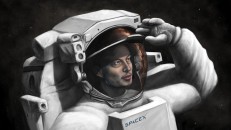 Although Apple fans will agree strongly with that assessment, feedback at YouTube loudly contradicts Musk. Here’s one of the more polite reactions:
Although Apple fans will agree strongly with that assessment, feedback at YouTube loudly contradicts Musk. Here’s one of the more polite reactions:
“Sounds just like Thomas Edison and Nikola Tesla. Except Elon Musk will probably end up being much more memorable than Steve Jobs :P”
As 2014 begins, Musk is still right, Steve Jobs is generally perceived as being “way cooler” than him. But that could change.
What will the history books conclude, in ten or twenty years from now? Steve Jobs certainly has big shoes to fill, but Elon Musk is already beginning to fill them. A lot will depend on Musk’s ability to see his grand visions come to fruition. First, he must complete his “Secret Master Plan for Tesla,” which includes the creation of a popular mass market electric car; and second, his vision of making space rockets reusable just like modern day jets.
One day, he may even achieve his life’s mission of dying on Mars, but as he describes it, “Just not on impact.”
Now that would be cool.

 Huang was keen to explore what Tesla’s big announcement will be on Thursday, something Musk has described as providing “an end to range anxiety.”
Huang was keen to explore what Tesla’s big announcement will be on Thursday, something Musk has described as providing “an end to range anxiety.”

 2014 Plugged-In Conference Plenary Session:
2014 Plugged-In Conference Plenary Session: 










